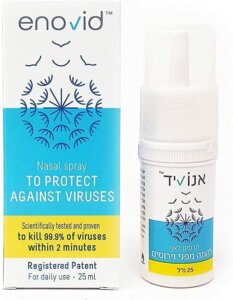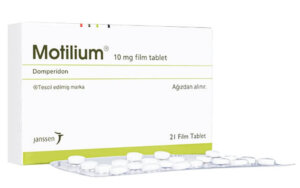
Herpes simplex virus type 1 (HSV-1) and type 2 (HSV-2) are so effective at spreading around the population simply because once a person is infected by either form of HSV, the virus remains in their body and can become active unexpectedly, causing fresh outbreaks anywhere on their body and potentially infecting others. There is no complete cure for herpes infections, so proper management is essential.
Although the signs and symptoms of HSV infection are usually mild and self-limiting in healthy people, HSV infections in immunocompromised patients or people on chemotherapy can be more aggressive, persistent, and even life-threatening.
It’s important to understand that an infection of one type does not automatically mean it will turn into the other. HSV-1 and HSV-2 are two different types of the virus. Herpes simplex type 1 typically causes sores around the mouth and nose, often called cold sores or fever blisters, while HSV-2 typically causes sores in the genital areas. HSV-1 cannot turn into HSV-2 because they are distinct viruses, but HSV-1 can cause genital herpes if the virus is spread to the genital area.
Transmission and Symptoms of HSV
Viral infections by HSV can be spread through close contact with someone who has the virus. This can include kissing, sharing utensils, sex, or even touching a surface that an infected person has touched. Herpes is not just a sexually transmitted disease; people can get it from everyday activities. The virus typically causes blisters or sores in the infected area. For some people, these sores can be painful, while others might not have any symptoms at all.
Outbreaks of Herpes Infections
An HSV outbreak typically follows a cycle of prodrome, blister formation, ulceration, and crusting/healing, lasting about 7 to 10 days in total. Recognizing the early symptoms of herpes and understanding the stages of an outbreak can help manage symptoms effectively and reduce the duration with appropriate treatment and care.
Prodrome Phase: In the early stage, symptoms such as tingling, itching, or burning sensations can be felt in the area where the outbreak will occur before visible sores form. Some people may also experience general flu-like symptoms such as fever, swollen lymph nodes, headache, or muscle aches. This phase can last from a few hours to a couple of days.
Blister Formation: Small, fluid-filled blisters begin to form in the area of the outbreak. The blisters are typically clustered together and can appear on or around the mouth and nose (for HSV-1) or in the genital area (for HSV-2). The area may be painful, and tender, and continue to itch or burn. This phase usually lasts 2–3 days.
Ulceration: The blisters break open, leading to shallow ulcers. Eventually, the blisters burst, leaving open sores that can be painful and weep fluid. This is often the most unpleasant phase, with discomfort peaking. It can last for a further 2–3 days.
Crusting and Healing: As the ulcers crust over and heal, the sores dry out and form scabs. The scabs eventually fall off, sometimes leaving a pinkish area of new skin. Pain and discomfort gradually decrease, but itching may persist as the skin heals. This final phase of an outbreak can last from a few days up to a full week, depending on the severity of the outbreak and an individual’s healing rate.
Factors Influencing the Outbreak, Duration, and Severity of HSV Infections
Several factors can influence the duration and severity of an outbreak:
- First Infection: Symptoms tend to be more severe and last longer, sometimes extending up to four weeks. Subsequent outbreaks are usually shorter and less severe, often lasting about a week.
- Immune System: A person with a robust immune system will likely heal faster, while stress, illness, or fatigue can prolong the outbreak. People with compromised immune systems are especially vulnerable to severe and prolonged outbreaks, which can even become life-threatening if not treated properly.
Handling an Outbreak of HSV
Preventing the spread of HSV-1 to other parts of the body, such as the genital area, is crucial. This is known as autoinoculation. To prevent autoinoculation:
- Handwashing: Thoroughly wash hands with soap and water after touching a sore.
- Avoid Touching Sores: If touching sores is unavoidable, use a tissue or a clean cloth and dispose of it immediately after use.
- Bathroom Hygiene: Wash hands before touching any part of the lower body, not just after using the toilet.
- Cover Sores: To minimize the risk of spreading the virus, keep sores covered with a clean, dry bandage.
Managing herpes infections by following simple hygiene practices will reduce, the risk of spreading HSV-1 from the mouth to other parts of the body, including the genital area. Good hygiene and careful handling of sores are key.
Managing Herpes Infections
Managing herpes infections, reducing the discomfort, and shortening the duration of an HSV outbreak can be achieved via the following strategies:
Treatment
- Zovirax tablets and Zovirax cream. These are both based on acyclovir, which prevents viral DNA synthesis and so stops the virus from replicating and spreading further. The oral form requires a doctor’s prescription, whereas the cream can be bought without a prescription. The tablets have a stronger effect, but it may take four or five days for symptoms to reduce. The cream is more effective in relieving pain and discomfort, but it may not help the sores heal faster than the oral medication.
- Valtrex is based on valacyclovir. It is an oral medication that can decrease the severity and length of outbreaks. It helps decrease pain and itching, helps sores heal faster, and prevents new sores from forming in areas that are already infected.
Over-the-counter pain relievers such as ibuprofen or acetaminophen can help reduce the discomfort.
Lifestyle
Managing stress, eating a healthy diet, and getting plenty of rest can help prevent outbreaks. If you feel an outbreak coming on, taking your medication can help stop it.
Special steps to take to manage herpes infections
Genital herpes, typically caused by HSV-2 but sometimes by HSV-1, is classified as a sexually transmitted infection (STI) because its primary mode of transmission is sexual contact. Managing and reducing the chance of transmission involves:
- Honesty with Sexual Partners: Inform sexual partners about the infection and take practical steps to manage and reduce the risk of transmission. Antiviral medications like Zovirax and Valtrex can help reduce the frequency and severity of outbreaks and lower the risk of transmission.
- Using Condoms: This can reduce the risk of transmitting the virus, though it’s not 100% effective as herpes can affect areas not covered by a condom.
- Avoiding Sexual Activity: Some people choose to avoid sexual activity when they have visible sores or symptoms, as this is when the virus is most contagious.
- Informing Past Partners: It’s generally advisable to inform past partners, especially if sex occurred during an outbreak or when you might have been contagious. Early detection and treatment can help manage symptoms and reduce the risk of complications.
Questions we are asked
Why does the CDC not recommend HSV testing?
The Centers for Disease Control and Prevention (CDC) does not recommend herpes testing for people without symptoms due to the limits of a herpes blood test and the possibility of inaccurate results, especially for those at low risk of infection.
Is there a cure for HSV-2 in 2024?
As of mid-2024, there is no cure or preventive vaccine for genital herpes. However, research into HSV vaccines is ongoing.
Should I be worried if I test positive for HSV-2?
Testing positive for HSV-2 does not necessarily mean there is a problem. Discuss test results with your healthcare provider to understand what they mean to you. Positive may indicate an active herpes infection without symptoms, or could just mean a past HSV infection.
Can I leave HSV-2 untreated?
Untreated herpes, particularly untreated genital herpes, can lead to complications such as:
- Increased risk of contracting other sexually transmitted infections (STIs).
- Neonatal herpes, where babies are exposed to the virus during birth.















